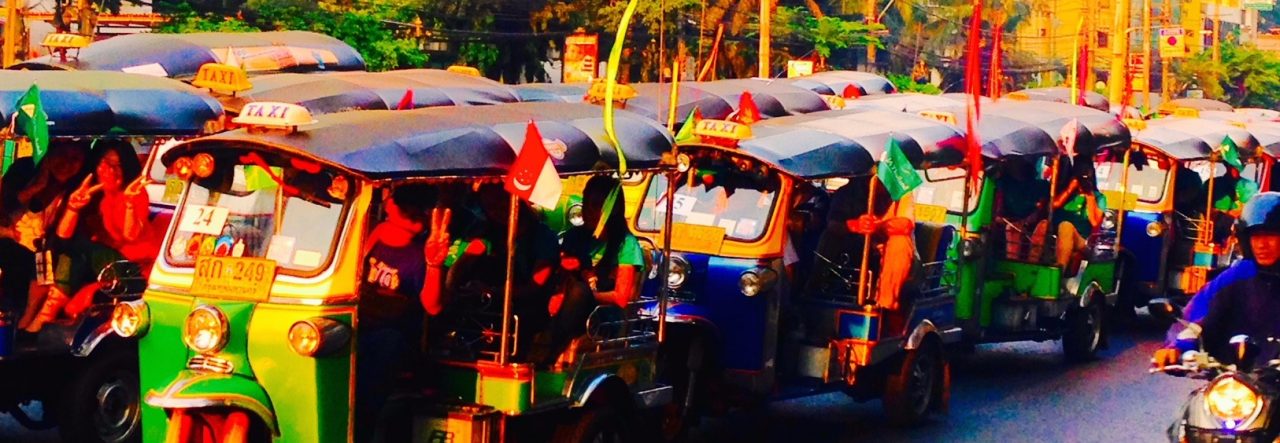By Graham Teskey This blog can be downloaded as a pdf at the bottom of this post. ‘Good’ governance—a mix of liberal democracy and free market institutions—is often claimed to be necessary for poverty reduction, growth and development1. Abt Associates does not subscribe to this view for the reason that there is no evidence to support …
Author: Governance Practice
Keeping Universal Health Coverage Centre Stage
By Jane Pepperall, Principal Health Lead For those of us invested in the Universal Health Coverage (UHC) journey over recent years, the UN High Level (HLM) Meeting on UHC in New York on 21 September is a much anticipated opportunity to review progress since the inaugural UHC HLM in 2019, as well as a clarion …
Continue reading Keeping Universal Health Coverage Centre Stage
Digital Solutions in Health: why Monitoring, Evaluation and Learning should be a critical part of Pacific countries’ investment
Didar Ali, Technical Advisor – Monitoring, Evaluation, Research and Learning The unrecognizeable medical staff uses digital tablet to review medical chart. I was pleased to attend the three-day Indo-Pacific Digital Health Users Forum in Fiji last week, where I learned about the increased use of technology in the health sector, the Pacific context and the …
Leadership and localisation: How Australia could support local women to exercise influence and drive change
By Dr Annemarie Reerink Although there has been much talk about women’s representation in Australia’s 47th Parliament, we have yet to hear how this government would prioritise local women’s leadership in our region. Yet, the political transition in Canberra and the new government’s aspirations for a “reset” with the Indo-Pacific region present a significant opportunity …
Grappling with localisation
By Graham Teskey My colleague Dr Priya Chattier and I have just published a working paper on the Abt Governance Soapbox Website, entitled “Localisation: what could it mean for contractors?”. We wrote this paper due to our increasing frustration with the sheer unreality of the literature (and speeches) emerging within the development community on the …
What does ‘inclusive growth’ mean for women with disabilities?
By Dulce Natividade Fátima da Cunha and Rebecca Devitt Magdalena Soares, a Timor Leste woman with a disability, knows how to be resourceful. Self-taught to read and write, she has never been to school. Yet Magdalena is determined to be the best version of herself. In Magdalena’s words, ‘people stare at me often because of …
Continue reading What does ‘inclusive growth’ mean for women with disabilities?
Yu Tru’: The scheme that could cut poverty in PNG, how industry ‘insiders’ tried to stop it and how a team of ‘outsiders’ used TWP to push back
by Tara Davda Why do ‘insiders’ resist new technologies? A new paper, Working Politically and Adaptively in Practice: The Case Study of ‘YuTru’, examines this question. Drawn from a series of interviews and key reports, it examines the ‘Yu Tru’ scheme (an Australian Government funded, now private sector-led, digital trust framework), and explores the obstacles …
Advancing the UK’s new aid agenda
By Graham Teskey FCDO/Flickr There has been much disgruntlement over the past year regarding the demise of UK’s Department for International Development (DFID), its take-over by the Foreign, Commonwealth & Development Office (FCDO), and the savage cuts in the aid budget. As distant but interested observers, what can we be optimistic about? Before his ignominious …
How to do Adaptive Management in 15 easy steps – from a top new toolkit
This is the second part of a review of a new paper written by Graham Teskey and Lavinia Tyrrel. Find the first post on the Soapbox here. The review was written by Oxfam's Duncan Green and featured on the From Poverty to Power blog. Yesterday I summarized the thinking behind an important new toolkit on adaptive management. …
Continue reading How to do Adaptive Management in 15 easy steps – from a top new toolkit
Review of ‘Implementing adaptive management: A front-line effort. Is there an emerging practice?’
Oxfam's Duncan Green (From Poverty to Power) reviews Graham Teskey and Lavinia Tyrrel's new paper. In recent years, I’ve been one of a crowd of people thinking and pontificating about ‘adaptive management’. The debate has been rather dominated by academics and thinktankers, fond of hand-waving generalizations and rather better at taking down the bad stuff …
Accountability is the path to better governance in PNG
by Justice Gua When we look at progress in decentralisation in Papua New Guinea over the last 20 years – the sole continuous and overriding policy priority of successive governments – many challenges remain to improve downstream service delivery. Programming for “social accountability” shifts the focus from governmentto governance. It’s about the difficult stuff, even it’s …
Continue reading Accountability is the path to better governance in PNG
Accountability in PNG: Green for Go or Red for Stop?
By Graham Teskey. Accountability_in_PNG_by_Graham_Teskey Download
